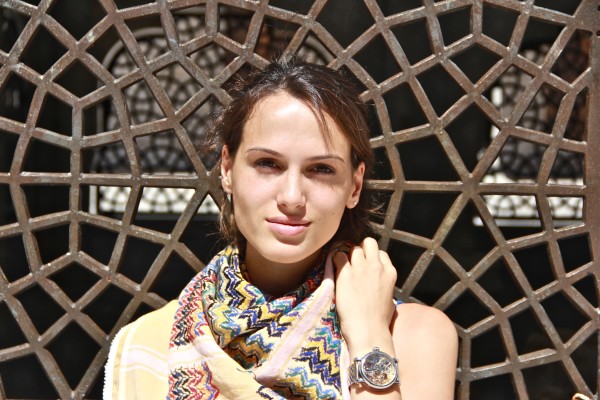
16 Jul The Short Version: Net Neutrality
The point of it all is to break down the headlines, determine why an issue is important, and reveal the best arguments on each side of the story. Last week Cleo looked at Google’s$2.7B antitrust fine and wondered where is the line between giving users a better experience and promoting Google at the expense of market competition? This week the subject is net neutrality.
Note: If you have missed any of Cleo’s blogs, just go to our Home Page, type “The Short Version” into Search (magnifying glass icon) and poof, like magic, all her blogs will appear.
“I love getting feedback every week—thank you! If you want come hang out, debate a thing or two, and meet other Shorties, check out Short Events,” says Cleo.

Cleo Constantine Abrams of the “Short Form,” offering densely packed spins on issues of national and global importance.
What’s happening?
What if all the websites you like loaded
one
word
at
a
time
… unless they paid your internet service provider extra?
Right now, internet service providers (ISPs) like Verizon and Comcast have to treat all information online equally, no matter where it comes from. That principle is called net neutrality.
But net neutrality might not be law for long. These rules are likely to be dismantled by the Federal Communications Commission (FCC) under President Trump.
Why is it important?
In 2015, the FCC under President Obama put in force rules to protect net neutrality by classifying high speed internet as a public utility. As a utility, the commission ruled, it had to be equally accessible for all Americans.
Since then, the issue has become increasingly polarized along party lines. In general, Democratic legislators support strong net neutrality rules while Republicans do not.
Debate it!
Should the internet be treated as a public utility?
Why “The Short Version” on TIO:
Over nine years ago, Telluride Inside…and Out began as a lifestyle webzine. Today, in the full knowledge that Telluride is a window on the world, we continue to bring the “zazz” (short for “pizzazz) of the region to a local, national, and global audience by covering everything from Telluride’s robust cultural economy – major events and festivals – to health and fitness and outdoor adventure. When Telluride travels, we write about places to go, people to meet too. (That’s part of the “Out” part of our handle, the other, obviously, Outdoors.)
And now, this weekly column, “The Short Version,” which offers simple summaries of issues of national and global importance.
“The Short Version” is written by Cleo Constantine Abram, the daughter of Telluride locals Eleni Constantine and Jonathan Abram (and therefore an honorary local and regular visitor) and a digital strategist.
Why “The Short Version”? Because, though we live in Shangri-La, our bubble is not impermeable and the rest of the world is only a click away. Because there is no inconsequential action; only consequential inaction. And because information is power in a moment so many of us are feeling powerless.
More about Cleo Constantine Abram:

Cleo grew up in Washington D.C., lives in New York City, and loves to visit her parents in Telluride. She authors “The Short Version,” a newsletter that explains each week’s most important issue and both sides of the debate around it.
Cleo is a digital strategist now working at Vox, a general interest news site for the 21st century. Its mission is simple: Explain the news. Politics, public policy, world affairs, pop culture, science, business, and more.
Cleo’s work focuses on ways to share, educate, and inform using online platforms. While in college at Columbia University, she guided the school’s entrance into online education through her role as the youngest elected representative to the Columbia Senate, which makes university-wide policy.
She continued her work on online education at TED-Ed, the educational branch of the nonprofit, building new programs and online tools to support high school teachers worldwide.
Continuing her work with TED, Cleo founded and led an early TEDx conference, the organization’s community-specific series.
Recently, Cleo returned to school, studying video storytelling at Columbia Journalism School.
Most importantly, Cleo loves to ski.


Sorry, the comment form is closed at this time.